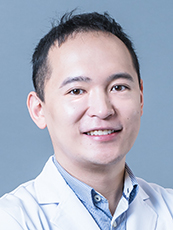Speakers

Dr. Philip LI
Hong Kong
Dr Philip Li is a Specialist in Immunology & Allergy and currently serves as Clinical Assistant Professor and Division Chief of Rheumatology & Clinical Immunology of the Department of Medicine, HKU. He is also the Vice President of the Hong Kong Institute of Allergy and a Board Director of the Asia Pacific Association of Allergy, Asthma and Clinical Immunology. He received the Chief Executive’s Commendation for Public Service and HKUMed Clinical Service Excellence Award in 2022.
Dr Li has special interests in anaphylaxis, drug hypersensitivity and immunodeficiency. He has led and authored many of the region’s Immunology & Allergy guidelines, including consensus statements on anaphylaxis, penicillin allergy and COVID19 vaccine allergy safety. He has published over 110 peer-reviewed articles in the fields of allergy, immunology and autoimmunity; and serves on the Editorial Boards of Frontiers in Immunology, Frontiers in Allergy, Asia Pacific Allergy and Journal of Clinical Rheumatology and Immunology.
Perioperative anaphylaxis remains one of the most severe and potentially life-threatening complications that can occur during or after surgery. This immediate-type hypersensitivity reaction is an uncommon but serious complication that can affect patients of all ages and can be triggered by a variety of possible culprits, including medications, latex, disinfectants, and even surgical materials.
The presentation will provide an overview of the local epidemiology, pathophysiology, and clinical presentation of perioperative anaphylaxis. It will highlight the importance of checking acute blood samples in aid of subsequent diagnosis as well as the role of allergy testing in identifying the specific trigger for anaphylaxis to prevent future episodes. The presentation will cover the different types of allergy testing, including both in vivo and in vitro tests, and their limitations. Furthermore, the presentation will highlight the importance of a multidisciplinary approach involving anaesthesiologists and allergists to ensure a comprehensive care for patients. Finally, the talk will provide practical recommendations for preventing and managing perioperative anaphylaxis in the future, including imminent developments in Hong Kong and the urgent need for more inter-specialty collaborations.
Overall, the presentation will provide a comprehensive overview of perioperative anaphylaxis, its management, and prevention strategies, and will be of interest to healthcare providers involved in perioperative care.